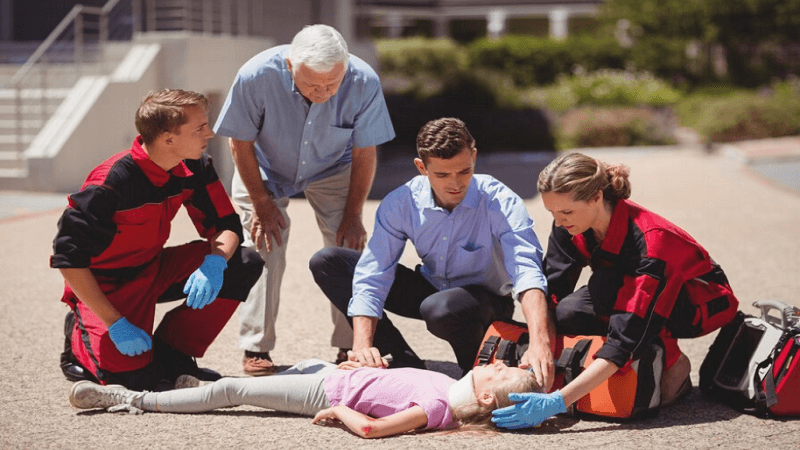Emergencies are unpredictable, and the ability to respond effectively is invaluable. First aid course in Perth prepares you for unforeseen events and instils confidence and responsibility. Consider this: Between 2018 and 2022, there were 114,847 reported crashes on roads in Perth, highlighting the vital importance of these skills. Acquiring the knowledge and ability to handle such emergencies can be a critical game-changer, equipping you to make a real difference in urgent situations.
1. Building Confidence to Act in Emergencies
One of the most significant benefits of completing a first aid course is the confidence it builds. Often, in emergency situations, hesitation or panic can worsen the scenario. Training gives you the information and useful abilities to handle various types of emergencies, from minor injuries to life-threatening situations. This knowledge translates into the confidence to take charge and provide necessary assistance when seconds count.
2. Understanding the Nuances of Emergency Care
A key aspect of emergency care training is understanding the nuances of different medical situations. You’ll learn how to assess a situation quickly and accurately, determining what type of care is needed. This could range from performing calgary cpr training to treating burns or fractures. Recognising the severity of an injury and knowing the appropriate response is crucial in reducing the risk of further harm. This training also covers communicating effectively with emergency services and providing clear and concise information that can be vital for the patient’s outcome.
3. Enhancing Community Safety
When more individuals are trained in emergency response, the community’s overall safety improves. In Perth, residents who have undergone this training can become invaluable assets during natural disasters, accidents, or public emergencies. Before expert medical aid arrives, they can offer urgent treatment, perhaps saving lives and lessening the severity of injuries.
This collective knowledge creates a safety net within the community, where people look out for each other and are prepared to act in times of need. Moreover, it can inspire others to undergo similar training, further strengthening the community’s ability to handle emergencies.
4. Encouraging a Proactive Approach to Health and Safety
Learning about emergency response also encourages a more proactive approach to health and safety. Trainees often find themselves more aware of their surroundings, identifying potential hazards and taking steps to prevent accidents. This mindset benefits the individual and creates a safer environment for those around them. It goes beyond reacting to emergencies; it’s about preventing them wherever possible.
5. Equipping for a Range of Scenarios
Emergency situations vary greatly, and a comprehensive course will prepare you for a wide range of scenarios. You’ll learn techniques for aiding individuals of different ages, including children and the elderly, and how to modify your approach depending on the situation. This versatility is crucial, as it ensures you are prepared to help in various contexts – whether at home, work, or in public spaces.
This training also highlights the importance of mental preparedness, teaching you how to remain composed and make sound decisions under pressure. It’s not just about physical skills but also about developing mental resilience in the face of adversity.
Conclusion
Participating in a first aid course in Perth empowers you to make a real difference in emergencies. The skills and knowledge gained are not just for personal benefit but extend to helping others in need. This training fosters a sense of community responsibility and altruism as you become someone who can potentially change the outcome of a critical situation. As explored here, the advantages of emergency response training extend far beyond the immediate ability to assist in emergencies. It fosters confidence, enhances safety awareness, and strengthens community resilience.
